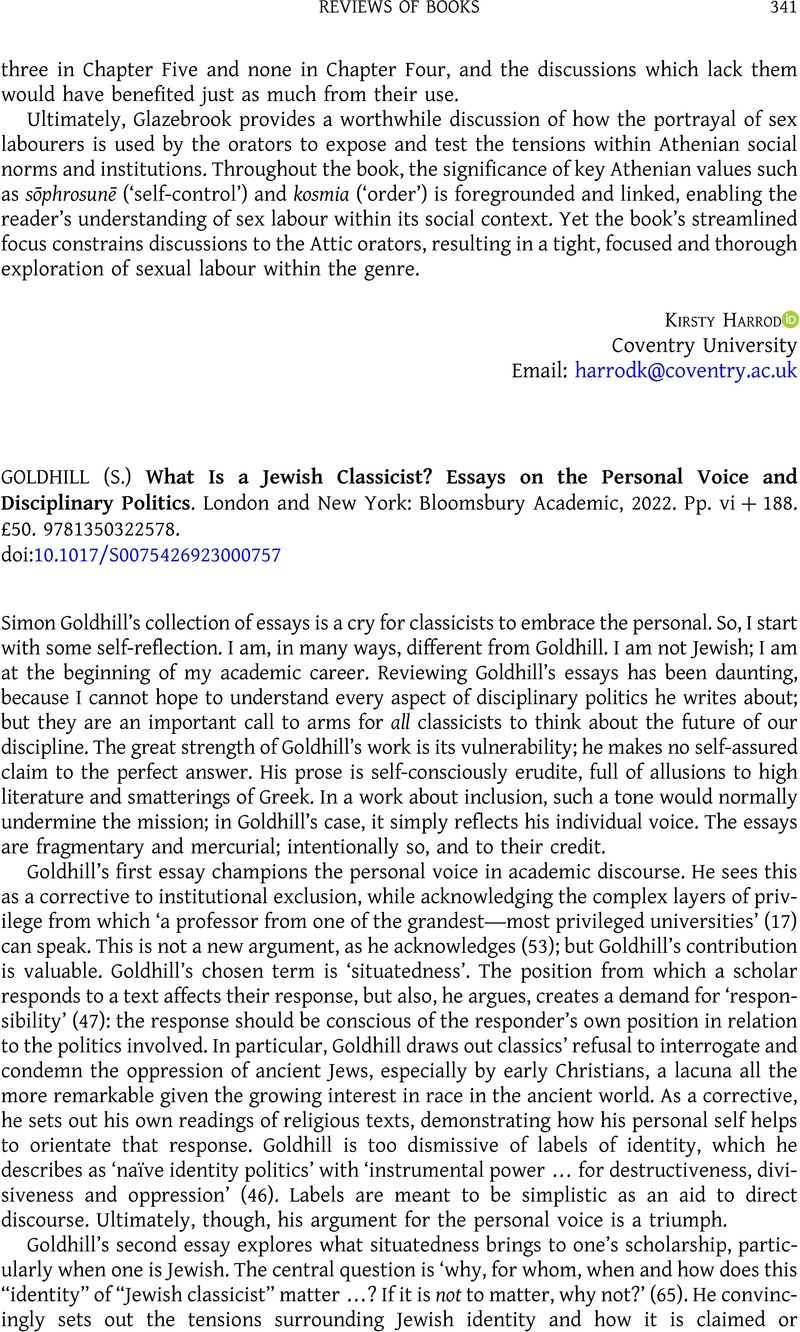No CrossRef data available.
Article contents
(S.) GOLDHILL What Is a Jewish Classicist? Essays on the Personal Voice and Disciplinary Politics. London and New York: Bloomsbury Academic, 2022. Pp. vi + 188. £50. 9781350322578.
Review products
(S.) GOLDHILL What Is a Jewish Classicist? Essays on the Personal Voice and Disciplinary Politics. London and New York: Bloomsbury Academic, 2022. Pp. vi + 188. £50. 9781350322578.
Part of:
Reception and history of scholarship
Published online by Cambridge University Press: 13 October 2023
Abstract
An abstract is not available for this content so a preview has been provided. Please use the Get access link above for information on how to access this content.

- Type
- Reviews of Books: Reception & History of Scholarship
- Information
- Copyright
- © The Author(s), 2023. Published by Cambridge University Press on behalf of the Society for the Promotion of Hellenic Studies


